- Featured
- Clean air
- Climate justice
- Consumer Rights
- Corporate Accountability
- Data access
- Early Childhood Development
- Economic fairness
- Education
- Electoral fairness
- Environmental justice
- Food justice
- Gender based violence
- Grants/social assistance
- Health
- Housing and infrastructure
- Industry interference
- Land Justice
- LGBTQIA+ rights
- Media/ information access
- Public transport
- Racism
- Reparations
- Safety
- Sanitation
- Service Delivery
- Sexual and Reproductive Rights
- Social justice
- Unemployment
- Womxn's rights/ gender equality
- Workers' rights
- More
-
Make the sex offenders list publicSouth Africa has the highest rates of rape and gender based violence. Women and children are not safe in homes, schools, university campuses, churches, at work - basically everywhere. We need to know who amongst us are convicted sex offenders so that we can protect ourselves There are raging protests all over the country, hashtags. We are tired of talking, this is one action that can help us deal with this scourge head on. The Department of Justice and Constitutional Development has, in terms of Chapter 6 of the Act, implemented the National Register for Sex Offenders on 30th June 2009. The Register contains information of people who have been convicted of sexual offences against children and mentally disabled people. Currently, the Register is not available to the public, only employers can access it. If the Registry's intention is to protect children and mentally disabled people against sex offenders why is it not accessible to the public?50,796 of 75,000 SignaturesCreated by Nelisa Ngqulana
-
Tell President Ramaphosa to help stop conflict related sexual violence in South SudanSouth Sudan is Africa’s youngest country having gained independence 8 years ago from Sudan. A civil conflict broke out in 2013 and it is estimated that 400,000 people have been killed during this war. Rape is being used as a weapon of war in South Sudan by soldiers from all sides of the conflict. This means thousands of women and children in South Sudan are not safe. Time and again we have heard horrific stories of rape including of children as young as 10 years and grandmothers over the age of 65 years. Even more horrifying is UNICEF’s estimates that as many as 25% of the victims of conflict related rape and other forms of sexual violence in South Sudan are children. As South Africans, we are deeply concerned about the conflict related sexual violence in South Sudan which has spiked dramatically after the signing of the September 2018 peace agreement. We are shocked by the outright dismissal and denial of conflict related sexual violence cases by South Sudanese authorities which encourages perpetrators and further traumatises the survivors of such violence. We believe in Ubuntu, sisterhood and the Pan-African spirit that binds us with South Sudan under the African Union and choose today to stand in solidarity with the women and children of South Sudan. We call on President Ramaphosa and International Relations Minister Naledi Pandor to work on our behalf towards ending conflict related sexual and gender-based violence in South Sudan. Sign this petition and stand in solidarity with the women of South Sudan fighting sexual and gender-based violence. Your voice will join thousands more who are calling on President Ramaphosa and International Relations Minister Naledi Pandor to use South Africa’s leadership position in the African Union and the UN Security Council to help bring about real and lasting peace in Africa’s youngest nation.1,043 of 2,000 SignaturesCreated by Khaliel Moses
-
Stop convicted woman abuser Koffi Olomide performance in South AfricaKoffi Olomide has a documented history of committing violence directed at women. In March 2019 he was convicted of statutory rape in France and between 2002 and 2006, sexually assaulted his dancers [1]. In 2016, he was deported from Kenya for assaulting one of his dancers. Allowing him to perform in South Africa would undermine the victims of his actions, which cannot be tolerated or allowed. South Africa already has a Gender Based Violence crisis and should not be rewarding perpetrators with platforms such as this. [1] https://www.africanews.com/2019/03/19/drc-s-koffi-olomide-found-guilty-of-sexual-assault-in-france/938 of 1,000 SignaturesCreated by Stop Koffi Olomide Collective

-
Demand for MEC Simelane-Zulu to supply Hormone Replacement Therapy at King Edwards VIII HospitalKwaZulu-Natal is South Africa’s second most densely populated province [5]. King Edward VIII Hospital is a tertiary level hospital providing services to the whole of KwaZulu-Natal and parts of the Eastern Cape [6]. The hospital currently does not offer any transgender programs with free distribution and access of hormones. Our objective is for them to do so by making it accessible to people as it currently only available in two provinces (Gauteng and Western Cape) in South Africa. Transgender people are defined as those whose personal identity and gender does not correspond with their birth sex [4]. Implementation of gender-affirming services proves to be scarce and difficult in our country [2]. Section 9 of the Constitution prohibits discrimination, among others on the grounds of gender [1]. The Alteration of Sex Description and Sex Status Acts (2003) corresponds with our constitutions laws which permits one to change the sex description on their birth record under certain circumstances [4]. Hormone replacement therapy (HRT) acts as a very vital part for transgender people to feel more like themselves. Since transgender men and woman will never be able to produce these hormones naturally, HRT is a lifelong treatment that needs to be used recurrently, similarly to chronic medication. People take either the hormone Oestrogen or testosterone with other drugs to help them attain the physical characteristics that society ascribes to the gender they identify with. Examples of this treatment include the development of breasts for transgender woman by taking the hormone Oestrogen whilst Testosterone aids masculinity advances for transgender men [3]. Trans South African you-tube Vlogger Glow Mamiii shares her personal journey on the struggles of gaining access to HRT. She began seeking treatment at Chris Hani Baragwanath (Soweto) but was told she would have to wait 3 months for them to administer the HRT. She then opted to seek treatment from a private doctor which not many people can afford as medical aids don’t cover gender-affirming treatments such as HRT and surgeries. She reveals her struggle of finding a trans-friendly private practitioner as well as her personal details regarding the bodily changes, psychological and emotional distresses she experienced on HRT [7]. During her psychiatric consultations and psychotherapy meetings she speaks out against being diagnosed with gender dysphoria as transgenderism is classified as a gender dysphoria disorder [8]. Johannesburg based media-advocacy organization Iranti published a press release from the World Health Organization which removes mental illness from Trans Diagnoses [9]. Medical aid schemes don’t cover gender-affirming treatments such as HRT and surgeries as they are considered “lifestyle choices” which leaves trans people with the burden of covering these costs [1]. HRT can cost up to R800 a month adding up to almost a quarter of a million rand on medication [3]. 15% of transgender people are living in poverty compared to 4% of the general population. 19% of transgender people report lacking any form of health insurance including medical aid [6]. Studies show that access to gender-affirming treatment helps reduce thoughts of self-harm and suicide among transgender people. The only public hospitals that offer trans-specific healthcare services in South Africa are [4]: • Chris Hani Baragwanath (Soweto) • Steve Biko (Pretoria) • Groote Schuur (Cape Town) • Helen Joseph (Johannesburg) Treatments are often limited and dependent on how close you live to the facility and the lengths of their waiting lists. The treatment entails regular check-ups and to ensure correct dosage. Withdrawals from HRT lead to severe psychological and emotional distress like gender dysphoria, depression, anxiety and fatigue. [1] https://www.2oceansvibe.com/2018/10/26/healthcare-medical-aid-and-the-transgender-struggle-in-south-africa/ [2] https://bhekisisa.org/article/2018-10-26-00-tips-for-finding-a-trans-friendly-healthcare-provider [3] https://bhekisisa.org/article/2018-10-26-00-the-high-cost-of-being-yourself-transgender-healthcare-and-private-medical-aids [4] https://www.sowetanlive.co.za/s-mag/2019-04-05-conversations-transgender-healthcare-in-crisis/ [5] https://www.southafricanmi.com/population-density-map.html [6] http://www.kznhealth.gov.za/kingedwardhospital.htm [7] https://youtu.be/WXYiZK0l6mc [8] https://youtu.be/CpCwS177WhU [9] http://www.iranti.org.za/169 of 200 SignaturesCreated by Mamello Mofokeng
-
Rewrite the Victim Empowerment programme booklet to highlight violence against LGBTIQ peopleIt is important that LGBTIQ people feel that the specific ways in which they are victims of violence in SA is named and acknowledged, because it is in framing things right, that we stand a chance at fixing them. Statistics by the Centre for risk analysis at the South African Institute of Race relations in 2017 said that 4 out of 10 LGBTIQ South Africans know someone who has been Murdered for being or suspected of being LGBTIQ. [1] This specific statistic alone, which has grown in 2019, shows that the support needed by LGBTIQ people in South Africa from the justice system is urgent and unique. And as such measures to address their plight as victims of gender based violence need to reflect them uniquely. The booklet rewritten will also educate on LGTBIQ issues, as well as champion the constitution. On this organisations like OUT provide a useful service. One report they produced asks the question: Is being gay unafrican? “Our Constitution says that we are not allowed to discriminate against anyone because of their sexual orientation. However cultural and traditional intolerance and negative attitudes from others still force people to hide their sexuality. As a result, some lesbian or gay people, including those living in African communities, do not disclose or openly show who they really are in public. This does not suggest, however, that homosexuality is un-African. On the contrary, it is clear that homophobia is un- African because it denies people the opportunity to express their full humanity.” [2] South Africa is already doing some of the work, as reflected in this report by the Sonke Gender Justice network... “ The analysis found that South Africa has developed a strong National Strategic Plan for HIV, STIs and TB 2012–2016 in terms of engaging men and boys, a strong 365 Day National Action Plan to End Gender Violence, and is a best practice example in terms of LGBTI policy and law in Africa” (https://genderjustice.org.za/publication/policy-report-south-africa/) We want the booklet to reflect this. [1] https://www.news24.com/Analysis/lgbt-community-still-faces-high-levels-of-violence-report-20171204 [2] https://www.out.org.za/index.php/library/literature?download=3:being-lesbian-or-gay-in-africa51 of 100 SignaturesCreated by Dineo Rabaholo
-
Gender Wage Gap: Banyana Banyana must get equal pay!South African women earn 27% less than men [2]. Our country already faces so many gendered social and economical issues and the gender pay gap also contributes to these issues. Our national women’s soccer team Banyana Banyana is just one example of women who work hard, yet they still remain underpaid and underfunded compared to Bafana Bafana (national men’s soccer team). If the argument has been that men work harder than women and “deserve” a higher pay, then without a doubt our women’s team have proven themselves to have worked harder than the men, but the willingness to increase their salaries still remains low. Earning an equal salary should not be about one’s gender, it should be about the fact that people do the same work in the same industry, and therefore should be paid the same. The time is now - SAFA must take action and pay the women what they deserve. References: [1] Jordaan calls for help to boost Banyana salaries amid outcry, Matshelane Mamabolo for IOL, 30 November 2018 [2] Do South African women earn 27% less than men?, Gopolang Makau for Africa Check, 27 September 2017700 of 800 SignaturesCreated by Yolanda Dyantyi
-
Government must ensure there are Sexual Offences Units at all institutions of higher learningA Sexual Offences Unit will ensure that survivors of gender based violence receive specialised and sensitive support and resources that will help towards their healing journey. Campuses that have an already existing ‘gender office’ need to change their systems so that they serve the concerns of everyone on campus, and are in line with the proposed Sexual Offences Unit. The Black Womxn Caucus, an intersectional women’s organisation at Wits University have called for a ‘rapid response rape team’ for gender based violence to be established on the campus. The movement advocates for a thorough understanding of gender violence as it occurs in many forms and in many spaces, and reinforces the violences that womxn and gender non-comfornimg bodies are subjected to in this country. As the number of rape, sexual abuse and killing of womxn and children in this country continues to increase so does the call from those most affected by violence in our society to organise ourselves to fight gender based violence. The Black Womxn Caucus insists that if their Vice Chancellor at the time, Adam Habib, among others, were able to establish a rapid response team [4] to clamp down on student protest action following the #FeesMustFall movement, there is no reason the university should also prioritise the establishment of a ‘rapid response team’ to address gender violence on campus. The Sexual Offences Units should include: support staff who encourage everyone on campus to go for prosecution through reporting their cases; this includes a 24 hour psychologists available at all times for emergencies, and a space for activists to assist in sharing insights to developing better models aimed at reducing all forms of violence on campus. This unit must also represent the different socio-economic backgrounds of members of the institutions community, and be able to cater to survivors of all backgrounds.152 of 200 SignaturesCreated by Black Womxn Caucus
-
Increasing access to safe abortions in South AfricaThe right to sexual and reproductive health (SRH) is an essential component of the right to life, the right to health, the right to education, and the right to equality and non-discrimination. Many women, young women, adolescent girls, and gender non-conforming people in South Africa are vulnerable to ill-health due to several economic and social barriers that prevent them from accessing timely and life-saving SRH services, including safe abortion and contraception. Better access to these services can prevent unsupported pregnancies and reduce unsafe abortions. When a woman is denied unencumbered access to these services, her agency and the right to make decisions about her body are limited. More than two decades have passed since the progressive Choice on Termination of Pregnancy Act (CTOPA), 1996, liberalised abortion in South Africa. However, women in South Africa continue to face barriers in accessing safe abortion services. This is due to severe stigma, refusal by healthcare providers to provide services due to their religious or moral beliefs, lack of information on the legally safeguarded rights under the CTOPA, and poor infrastructure and limited availability of safe abortion services. Due to these barriers, women and adolescent girls often resort to illegal and unsafe abortion services, which put their health and lives at risk. Unchecked advertising of ‘quick and pain free abortions’ by illegal providers perpetuates the stigma and misinformation about abortion among the population. According to a 2009 study, two illegal abortion procedures took place in South Africa for every safe legal procedure. Globally, unsafe abortion is one of the top five causes of maternal mortality, along with post-partum haemorrhage, sepsis, complications from delivery, and hypertensive disorder. In our country, many women die every year, or sustain injuries and disabilities due to unsafe abortions. For example, the 2014 Saving Mothers report, covering the period from 2011 to 2013, reveals that pregnancy-related sepsis accounted for 9.5% of maternal deaths during the said period.332 of 400 SignaturesCreated by My Body My Choice Campaign
-
We demand a Sexual Offences Unit at Rhodes University!Two years ago, with what sparked an international conversation on the issue of rape and rape culture, commonly known as the #RUReferenceList protests, women and non-binary individuals set precedent for other institutions across the country to participate in a national discussion on problematizing how unsafe campuses are. In 2016 women, from all walks of life across the country demonstrated in solidarity with those at Rhodes University – highlighting not only the prevalence of GBV in our society, but also the failure of institutions in protecting its students. Since the advent of democracy, our institutions pride themselves in being leaders of transformation in society. They have prided themselves in being vehicles providing a vast range of knowledge to individuals entering their spaces. Yet, when it comes to issues of gendered discrimination and the effects it has on individuals – particularly women and minority groups – our cries seem to be invalid, and our experiences erased. We are tired of saying “enough is enough!” when it only suits the institution’s agenda. Your ‘enough’ does not suffice as every day we continue to live in fear of when our bodies will become another statistic to the vast crimes we experience on a daily basis. A Sexual Offences Unit will ensure that survivors of gendered and sexual orientation violence are met with the utmost sensitivity, specialized support and resources that will help towards their healing processes. The Sexual Offences Unit should include: support staff who encourage students to go for prosecution through reporting their cases; this consists of 24 hour psychologists available at all times of emergencies, and a space for student activists to assist in sharing insights to developing better models aimed at reducing all forms of violence on campus. This unit needs to be cognizant of all socio-economic demographics of the student body, and thus be able to cater to survivors of all backgrounds. The unit will provide sensitized support to student survivors who might not want to go through reporting their cases at the SAPS where they face further victimization due to a lack of training, resources and subsequently compassion. Rhodes University needs to cultivate a space that will ensure a prioritization of justice to survivors of sexual violence. In conjunction to this, the unit will have to implement the recommendations that were presented by the Sexual Violence Task Team at the end of 2016 in response to the demands of the student led protest #RUReferenceList. This unit will be very important as students leave college and university environments to enter the working space where issues of harassment are also prone. Socialization plays a huge part in curbing violence in our country, and it should start at home, in this case, at school. Rhodes University, much like society at large, needs to tackle gendered discrimination systemically through acknowledging and institutionalizing a culture of accountability in relation to the violence students experience. We need to push for our spaces of higher learning, the communities that we occupy every day, to internalize on a personal level policies and practices that speak to dismantling this culture of protecting perpetrators and stigmatizing survivors.841 of 1,000 SignaturesCreated by Yolanda Dyantyi
-
Life Orientation must not be scrapped in Grades 10-12Learners need LO in Gr 10-12 and many benefit a great deal from this vital subject. The Minister made the promise in 2015 that LO will not be scrapped, but strengthened. So don''t break this promise! The implications of taking out LO will mean that teachers will not specialise in LO at universities if it is a small subject that only goes to grade 9. It will mean the end of the subject. There are many great LO teachers who are devastated. Learners only take career ed seriously in Grades 11-12. LO teachers are heartbroken at the sad news of history usurping LO. This was not a democratic decision not were LO experts consulted. To pit one subject against the other is unwise. Instead, the Department can create a subject called which can include African history and herstory, African role models and Governance, Constitution, Voting, Human Rights, etc. LO topics are vital to learners in Grades 10-12, they give in-depth career education, sexuality education, create awareness on gender issues, improve study and exam writing skills, stress management, substance abuse, environmental protection and relationships, diversity and self-esteem enhancement. They also promote Indigenous Games. [1] Motshekga defends life orientation, The New Age. 15 Feb 2017.2,353 of 3,000 SignaturesCreated by Edna Rooth
-
Better Care for HIV Positive People and their PartnersMost people living with HIV do not disclose their statuses to their sexual partners due to fear of rejection or gender-based violence. This means that the one with HIV may struggle to adhere to treatment leading to poor compliance or virological failure and the one with unknown status is at risk of HIV in case she or he is HIV negative. On the other hand, reproduction is a human right irrespective of HIV status and serodiscordant partners have no access to a program designed to assist them in safely achieving their reproductive needs. Those who want to conceive, considerations in choosing the optimal method to achieve pregnancy include transmission risk, treatment efficacy, and affordability should be prioritized. Research has proven that HIV-negative partners in serodiscordant couples are at risk of HIV infection if the index partner did not receive any intervention. Due to non-availability of assisted partner notification support for HIV positive people who want to disclose safely to their partners and safer conception services for discordant partners, people tend to keep their HIV statuses to themselves and engage in unprotected sex in order to meet their reproductive need. In 2016, World Health Organization (WHO) released self-testing and Partner notification guidelines which state that Voluntary assisted partner notification services should be offered as part of a comprehensive package of testing and care offered to people with HIV. The same year, South African National Department of Health released Health Sector HIV Prevention Strategy that focused on rendering HIV prevention service to serodiscordant couples among other services but until now, there is no guide on service delivery to HIV positive people and their partners even though the 2017-2022 NSP mentioned the need for Assisted Partner Notification and discordant partner support (including Prep). Serodiscordant couples are listed among vulnerable population on the strategy released in 2016 but other groups like truck drivers, inmates, OVC's, survivors of sexual abuse, Young women, and Girls and migrant population have programs specific for their health needs but no services to support people with HIV people and their partners. The Dukashe Family (in the picture - discordant marriage) is fortunate enough because the couple is in the health field and could afford safer conception service even though the wife struggled to disclose the status for a very long time (as most people with HIV do).158 of 200 SignaturesCreated by Mandisa Dukashe
-
Tell SAFA sponsors to ensure Danny Jordaan is suspended over rape allegationsWomen face huge barriers in pursuing justice for gender-based violence and sexual assault. For too long powerful men have used patriarchy and vast resources at their disposal to maintain a system where it is extremely difficult for women to come forward, and those who do often don’t see justice. Yet, day by day, this system which silences women is being exposed and dismantled. Jennifer Ferguson has already faced challenges coming forward with her experiences of allegedly being raped by Danny Jordaan, including being told by a Police Constable “You can’t report this! Why has it taken so long?” 3. Jennifer Ferguson alleges that when she tried to find justice through mediation outside of court in 2017, Danny Jordaan’s Advocate contacted her child’s father and “...asked if he would be prepared to come forward, off the record, to disclose anything compromising [about] my past” 4. If Danny Jordaan is so innocent, why is SAFA, the organisation he is President of, defending him? Sources [1] http://ewn.co.za/2018/03/29/safa-to-support-danny-jordaan-in-jennifer-ferguson-rape-claim [2] https://www.safa.net/2018/03/29/let-justice-take-course/ [3] https://www.dailymaverick.co.za/article/2018-03-26-jennifer-ferguson-why-ive-laid-a-rape-charge-against-danny-jordaan/#.Wr0Lp5NuY_U [4] https://www.dailymaverick.co.za/article/2017-11-01-op-ed-why-danny-jordaans-response-to-rape-allegations-insults-us-all/#.Wr0LpJNuY_U284 of 300 SignaturesCreated by amandla.mobi member

.png)
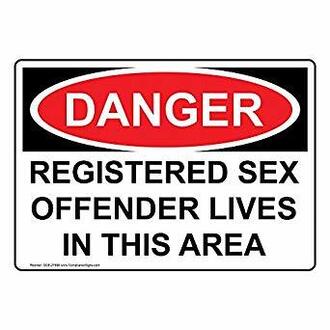
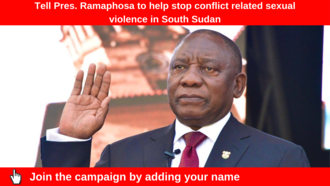
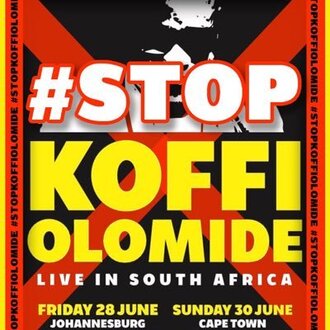


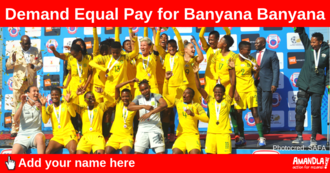.png)

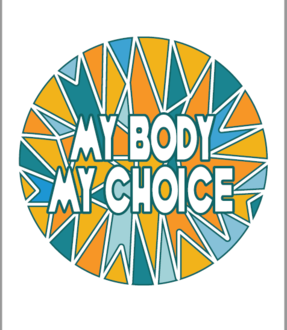


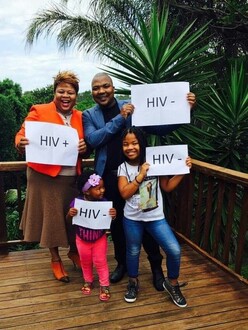
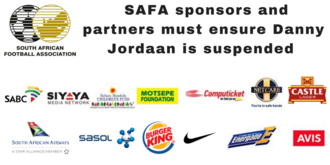.png)